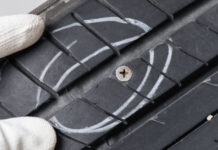Ever pondered the cause of itching, even when there’s no apparent reason? Scientists from Harvard Medical School suggest they’ve identified the answer. A specific type of cell in the bacteria Staphylococcus aureus. When present, induces itchiness by directly affecting our nerve cells.
The results, derived from studies involving mice and human cells, were disclosed on Wednesday in ‘Cell’. This research contributes a crucial element to the enduring mystery of itch. It sheds light on the reason why prevalent skin conditions such as eczema and atopic dermatitis are frequently associated with persistent itching.
What Causes Itching?
Conditions like eczema and atopic dermatitis disrupt the balance of skin microorganisms. While providing an environment for S. aureus to thrive, according to the researchers. Contrary to the previous belief that itch in these conditions was a result of skin inflammation. However, recent discoveries indicate that S. aureus independently triggers itching through a molecular chain reaction, ultimately prompting the irresistible urge to scratch.
Read More: AI Diagnoses Diabetes In Record 10 Seconds Through Voice
“We’ve identified an entirely novel mechanism behind itch — the bacterium Staph aureus, which is found in almost every patient with the chronic condition atopic dermatitis. We show that itch can be caused by the microbe itself,” said senior author Isaac Chiu, associate professor of immunology at the Blavatnik Institute at HMS.

Study Design
In the study, experiments revealed that S. aureus releases a chemical activating a protein on nerve fibers transmitting signals from the skin to the brain. Administering an FDA-approved anti-clotting medicine to animals effectively prevented the activation of this protein, disrupting a crucial stage in the itch-scratch cycle. This treatment alleviated symptoms and reduced skin damage.
“Itch can be quite debilitating in patients who suffer from chronic skin conditions. Many of these patients carry on their skin the very microbe we’ve now shown for the first time can induce itch,” said study first author Liwen Deng, a postdoctoral research fellow in the Chiu Lab.
Concentrating on 10 enzymes released by the microbe upon skin contact, the team systematically ruled out nine suspects. The findings highlighted that a bacterial enzyme, protease V8, was solely accountable for triggering itch in mice. Analysis of human skin samples from atopic dermatitis patients revealed elevated levels of S. aureus and increased V8 levels compared to healthy skin samples.
The analyses revealed that V8 induces itch by activating a protein called PAR1. Present on skin neurons originating in the spinal cord and responsible for transmitting various signals touch, heat, pain, and itch from the skin to the brain. Normally dormant, PAR1 becomes activated upon contact with specific enzymes, including V8. The research demonstrated that V8 clips one end of the PAR1 protein, awakening it. In mice experiments, activated PAR1 initiated a signal interpreted by the brain as itch. Similarly, lab dish experiments with human neurons showed a response to V8.
The scientists are optimistic that the drug could serve as an anti-itch medication for humans, potentially being incorporated into new creams in the future.
Read More: Dove Teams Up With Virtual Influencer To Redefine Body Positivity
Stay tuned to Brandsynario for the latest news and updates.









































